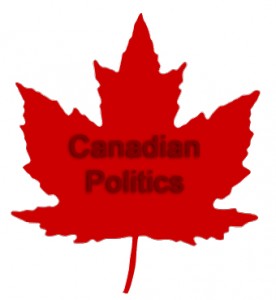 THUNDER BAY – There is a great deal of talk of a federal election this spring. In Thunder Bay Superior North, both Liberal candidate Yves Fricot and Conservative candidate Richard Harvey have been out on the campaign trail. Both candidates are challenging incumbent MP Bruce Hyer from the New Democrats.
THUNDER BAY – There is a great deal of talk of a federal election this spring. In Thunder Bay Superior North, both Liberal candidate Yves Fricot and Conservative candidate Richard Harvey have been out on the campaign trail. Both candidates are challenging incumbent MP Bruce Hyer from the New Democrats.
From the overall picture across Canada, the Conservatives appear in a positive position for an election.
According to Harris/Decima Chairman Allan Gregg, “These are the best numbers we’ve seen for Stephen Harper and the Conservative since the afterglow of the 2008 election. They have picked themselves off the floor in Quebec and are now tied with the Liberals, the historic gender gap has been virtually eliminated, they have a solid lead in Ontario and since the fall of 2010 are more competitive in Toronto than any time in recent history, and seem to be taking advantage of NDP difficulties in BC. While it is always a dubious exercise trying to isolate one event, instance or individual that is responsible for shifts in voter preference, other work we have completed on leadership favourability suggest that the turn in Conservative fortunes may be the result of Mr. Ignatieff’s misfortunes.”
“After a modest improvement in his net favourability scores, the Liberal leader has lost ground in our most recent poll. More importantly, our findings indicate that he is perceived more negatively by Conservatives than Mr. Harper is by Liberals, making him the more polarizing figure of the two, and suggesting the Conservative’s recent attack ads may be mobilizing their soft supporters more squarely into their camp. These results don’t guarantee a spring election but they definitely should strengthen the resolve of the Conservatives to resist any compromises in the upcoming Budget that opposite parties may offer in exchange for propping up the Government.”
- Nationally, over the last two weeks, the Conservative lead is ten points. The Conservatives stand at 37%, to 27% for the Liberals, 14% for the NDP, 10% for the BQ, and 10% for the Greens.
- The BQ remains well in front in Quebec. Here, the Bloc stands at 40%, to 19% for the Liberals, 19% for the Conservatives, 11% for the NDP and 8% for the Greens.
- The Conservatives now hold a 9-point lead in Ontario. The Conservatives hold 43% support, to 34% for the Liberals, 12% for the NDP, and 10% for the Greens.
- The Conservatives are now in front in British Columbia. Here, they stand at 35%, to 29% for the Liberals, 19% for the NDP and 16% for the Green Party.
- The Conservatives remain the dominant party on the Prairies. In Manitoba and Saskatchewan the Conservatives are at 48%, to 22% for the Liberals, 20% for the NDP, and 9% for the Greens. In Alberta, the Conservatives stand at 56%, to 21% for the Liberals, 12% for the NDP and 10% for the Greens.
- The Conservatives now hold a ten point lead in Atlantic Canada. The Conservatives are at 39%, to 29% for the Liberals, 24% for the NDP and 6% for the Greens.
Over the latest week, Harris/Decima also probed opinions on the leaders of the major parties. This data reveals:
- Prime Minister Harper currently holds a net positive rating of 3 points. Nationally, 46% say their impression of Mr. Harper is favourable, while 43% hold an unfavourable opinion. This is the first time since November 2009 that Mr. Harper has held a net positive rating.
- Mr. Ignatieff is viewed favourably by 25%, and unfavourably by 51%. This represents a dip since last month, when 30% viewed the Liberal leader favourably, and also represents the lowest favourability he has received since becoming Liberal leader.
- NDP leader Jack Layton holds a net positive rating of 6 points, with 44% viewing him favourably, and 38% viewing him unfavourably. These numbers remain relatively unchanged from last month.
- Green Party leader Elizabeth May is viewed favourably by 25% and unfavourably by 30%.
- BQ leader Gilles Duceppe owns the highest net positive rating with 53% in Quebec viewing him favourably, and 30% viewing him unfavourably.
This data was collected through teleVox, the company’s national telephone omnibus survey. The vote intention data were gathered between February 3 and February 13 2011 for 3,025 completed interviews. A sample of the same size has a margin of error of 1.8%, 19 times out of 20. The data pertaining to leadership were gathered between February 10 and February 13 2011 for 1,007 completed interviews. A sample of the same size has a margin of error of 3.1%, 19 times out of 20.
